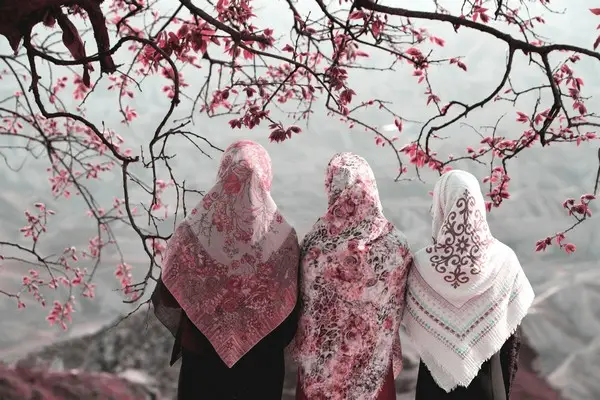Table of Contents
- Historical Context and Emergence of Islam
- Core Beliefs and Practices
- The Ummah and Social Structure
- Islam and Modernity
- Islam in Diverse Cultural Contexts
- Conclusion
Islam, one of the world’s major monotheistic religions, has profoundly shaped societies, cultures, and politics across the globe. Originating in the Arabian Peninsula in the 7th century, Islam rapidly expanded to become a significant force, influencing diverse regions from North Africa to Southeast Asia. This article aims to provide an overview of Islam, its core beliefs, practices, and its sociological implications. We will explore the historical development of Islam, its central tenets, the role of the ummah (Muslim community), and the impact of Islamic principles on social structures and cultural norms.
Historical Context and Emergence of Islam
Islam emerged in the 7th century CE in the Arabian Peninsula, a region characterized by tribal societies and polytheistic religious practices. The Prophet Muhammad, born in Mecca around 570 CE, is regarded as the final prophet in a long line of prophets that includes figures like Abraham, Moses, and Jesus. Muhammad received revelations from Allah (God) through the angel Gabriel, which were later compiled into the Qur’an, the holy book of Islam.
The initial revelation in 610 CE marked the beginning of Islam, which quickly grew as Muhammad preached the message of monotheism, social justice, and moral conduct. The early Muslim community faced persecution in Mecca, leading to the Hijra (migration) to Medina in 622 CE. This event marks the beginning of the Islamic calendar. In Medina, the Muslim community established a social and political order based on Islamic principles, which eventually led to the conquest of Mecca and the unification of the Arabian Peninsula under Islam.
Core Beliefs and Practices
The Five Pillars of Islam
Islam is founded on five fundamental acts of worship, known as the Five Pillars, which provide a framework for a Muslim’s faith and practices. These pillars are:
- Shahada (Faith): The declaration of faith, stating that there is no god but Allah, and Muhammad is his prophet. This proclamation affirms the monotheistic belief central to Islam.
- Salah (Prayer): Muslims are required to perform five daily prayers facing Mecca. These prayers foster a sense of discipline, spirituality, and connection to the broader Muslim community.
- Zakat (Almsgiving): Muslims are obligated to give a portion of their wealth to those in need, promoting social equality and economic justice.
- Sawm (Fasting): During the month of Ramadan, Muslims fast from dawn to sunset, refraining from food, drink, and other physical needs. Fasting is a means of self-purification and empathy for the less fortunate.
- Hajj (Pilgrimage): Muslims who are physically and financially able must undertake a pilgrimage to Mecca at least once in their lifetime. Hajj symbolizes unity, equality, and submission to Allah.
The Qur’an and Hadith
The Qur’an is considered the literal word of God, revealed to Muhammad over 23 years. It serves as a comprehensive guide for personal conduct, legal principles, and social ethics. Alongside the Qur’an, the Hadith—collections of sayings and actions of Muhammad—provides additional context and guidance for interpreting Islamic teachings. The Hadith complements the Qur’an, offering practical examples of how to live according to Islamic principles.
The Ummah and Social Structure
The concept of the ummah, or the global Muslim community, is a fundamental aspect of Islamic identity. The ummah transcends national, ethnic, and linguistic boundaries, emphasizing a sense of brotherhood and solidarity among Muslims worldwide. This sense of unity is reinforced through shared rituals, such as the daily prayers and the Hajj pilgrimage.
Islamic teachings promote social justice, equality, and communal responsibility. The zakat, for instance, is designed to redistribute wealth and alleviate poverty, fostering a more equitable society. Additionally, Islamic law, or Sharia, encompasses a comprehensive legal and ethical system that governs various aspects of life, including marriage, commerce, and criminal justice. While interpretations of Sharia vary across different cultures and historical periods, its underlying principles aim to promote justice, compassion, and moral integrity.
Gender Roles and Family Structure
Islamic teachings on gender roles and family structure have been subjects of extensive debate and interpretation. The Qur’an and Hadith emphasize the importance of family, mutual respect, and the complementary roles of men and women. Men are generally seen as providers and protectors, while women are regarded as caregivers and nurturers. However, these roles are not rigid, and Islamic history includes numerous examples of women in leadership, scholarship, and commerce.
The status of women in Islamic societies has varied significantly across different regions and historical periods. While some interpretations of Islamic law have led to restrictive practices, other interpretations emphasize gender equality and women’s rights. The concept of Ijtihad, or independent reasoning, allows for reinterpretation of Islamic teachings to address contemporary issues, including gender equality.
Islam and Modernity
Get the full article AD FREE. Join now for full access to all premium articles.
View Plans & Subscribe Already a member? Log in.





